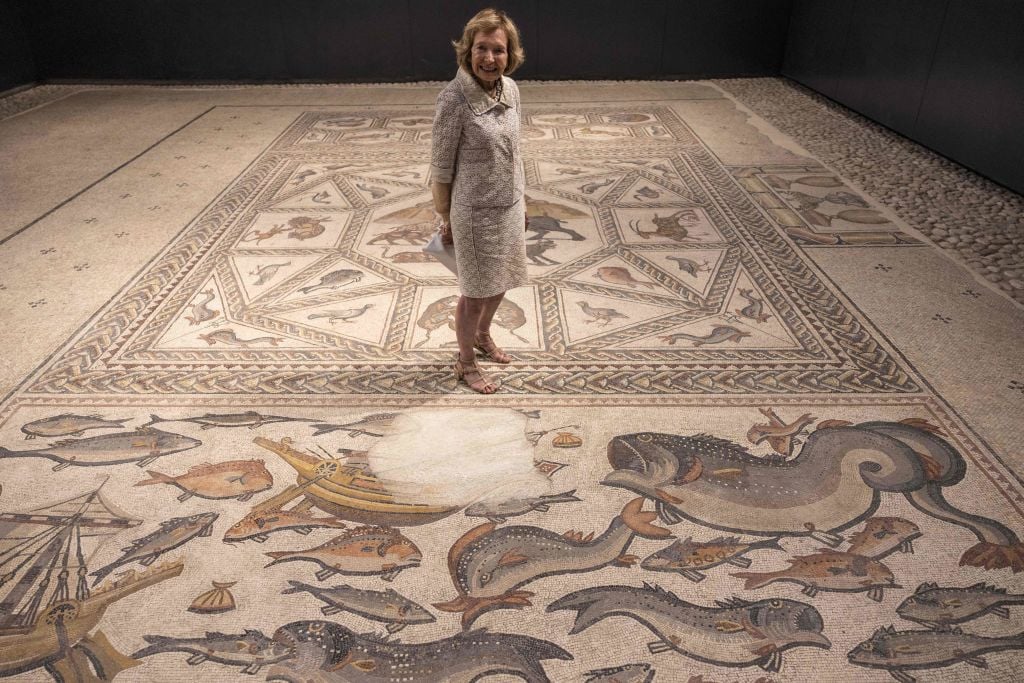Law & Politics
Authorities Have Confiscated Almost Two Dozen Antiquities From the Collection of Met Trustee Shelby White
The seizures took place over the past 18 months.

The seizures took place over the past 18 months.

Taylor Dafoe

Nearly two dozen antiquities repatriated to Turkey and Italy in recent months were confiscated from the collection of prominent philanthropist Shelby White.
In June of 2021, the Manhattan District Attorney’s Office issued a warrant for the search of the octagenarian collector’s New York home, where authorities subsequently seized five relics. Another search, conducted in April of 2022, yielded 18 additional objects.
Among the pieces collected in the latter search was a bronze statue of the Roman Emperor Lucius Verus from the late second or early third century CE, as well as four sections of a sarcophagus from the ancient city of Perge, which dates to between 170 and 180 CE. The document estimates the statue to be worth $15 million, while the sarcophagus fragments are collectively valued at $1 million.
All five objects were repatriated to Turkey in October.
The warrants showed that Homeland Security agents found “reasonable cause” to suspect that the artifacts were stolen from their country of origin. They constitute evidence of criminal possession of stolen property in the first, second, third, and fourth degrees, according to the documents.
White could not be reached for comment. “I really don’t have anything to say,” she told the Art Newspaper, which broke the news of the raids and subsequent restitutions.
Over the course of decades, White amassed a sprawling collection of ancient art with her husband, the late Wall Street investor Leon Levy. After Levy’s death in 2003, she established a foundation in his name and the non-profit has since given out some $500 million in grants to numerous causes and institutions—the Brooklyn Museum in New York and National Museum of Asian Art in Washington, D.C., among them.
Notably, White has also maintained a longstanding philanthropic relationship with the Metropolitan Museum of Art and now sits on the institution’s board of trustees.
In 1990, more than 200 antiquities from her and her husband’s collection comprised a show at the Met, called “Glories of the Past: Ancient Art from the Shelby White and Leon Levy Collection.” In 1995, the couple donated $20 million to the museum for the expansion of its Greek and Roman Galleries, and 12 years later, in 2007, the institution named one of those exhibition spaces after them.
However, White’s collection has consistently drawn controversy for containing objects that are believed to have been unethically sourced. A decade after “Glories of the Past,” for instance, a pair of archaeologists published a study suggesting that as many as 93 percent of the show’s objects had no known provenance. Some of those relics are believed to be among those seized by the D.A.’s office this year and last.
In 2006, White gifted a staggering $200 million to New York University for the establishment of the Institute for the Study of the Ancient World. But that gift, too, proved to be divisive, as critics called out the school’s apparent hypocrisy in founding an ancient studies arm with money from someone accused of trafficking in illegal antiquities. An anthropology professor resigned in protest.
“I simply no longer wanted my name to be affiliated with an organization that would accept such a gift without expressing severe reservations or even protest,” the professor, Randall White, said at the time. “This is a major issue—the flow of antiquities through the art market. This is not a small issue cropping up by a few malcontents. This is something we fight daily to try to preserve the archaeological record.”
The recent seizures aren’t the first examples of White ceding pieces in her collection under legal or social pressure. In 2008, the collector repatriated nine Greek and Etruscan objects to Italy after the country’s government claimed they had been illegally exported. That same year, she returned two pieces to Greece. In 2011, a sculpture she co-owned with the Museum of Fine Arts in Boston was returned to Turkey.